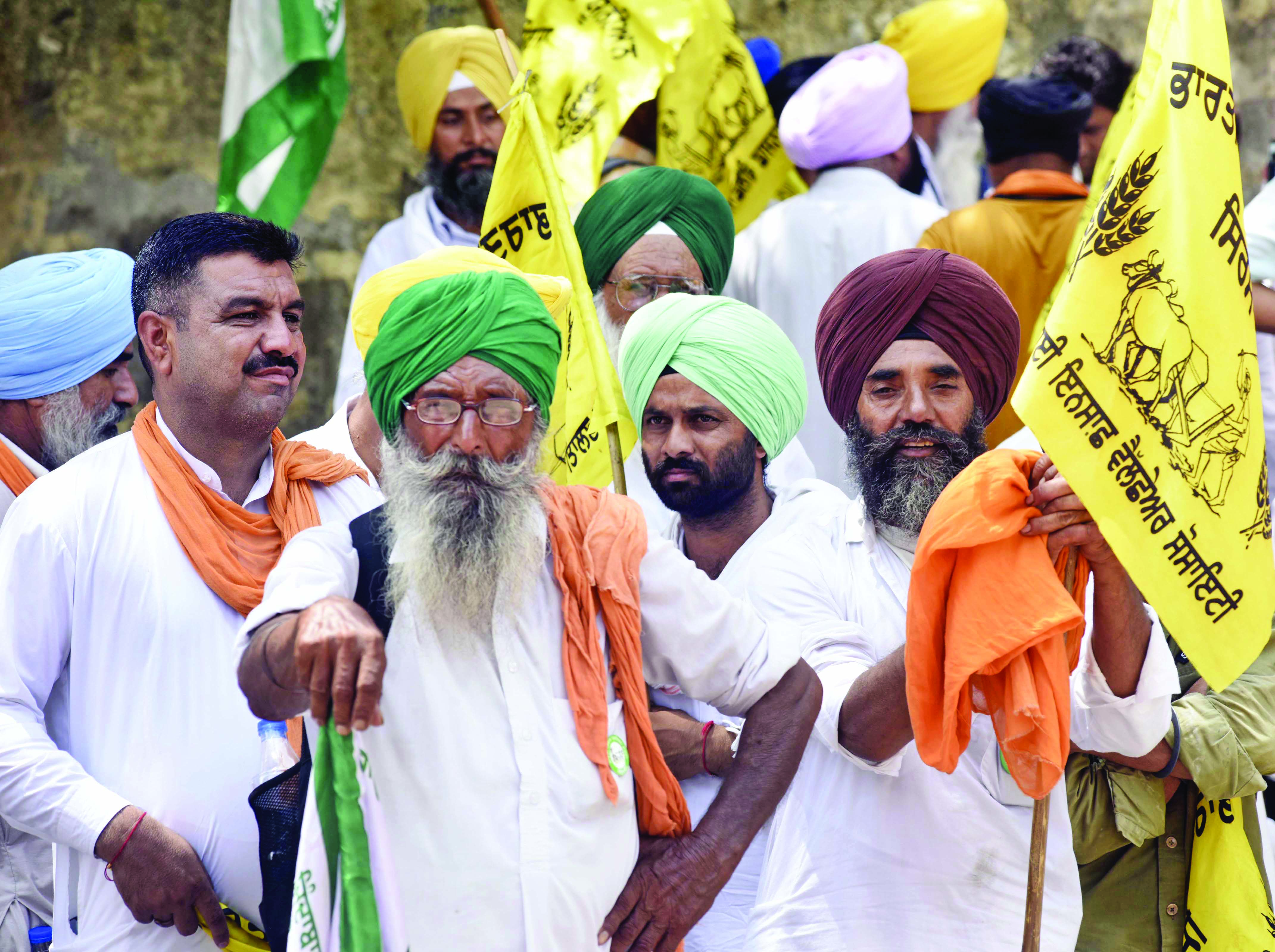Supreme Court constitutes panel to resolve grievances of protesting farmers

New Delhi: In a significant development aimed at resolving the ongoing farmers’ protests at the Shambhu border between Punjab and Haryana, the Supreme Court on Monday constituted a high-powered committee to address the concerns of the agitating farmers. The committee, headed by former Punjab and Haryana High Court judge Justice Nawab Singh, was formed with the objective of facilitating an amicable resolution to the farmers’ demands.
A bench comprising Justices Surya Kant and Ujjal Bhuyan issued the order, emphasising that the farmers’ protests should not be politicised. The five-member committee has been directed to hold its first meeting within a week and engage with the protesting farmers to persuade them to remove their tractors and trolleys from the Shambhu border. This move is aimed at providing relief to commuters who have been severely affected by the blockade.
“The court hopes that the formation of a neutral, high-powered committee, as requested by the farmers, will lead to the immediate removal of the blockade at the Shambhu border. This will not only alleviate the hardships faced by the general public but also allow the committee to address the farmers’ demands in an objective manner,” the bench stated.
The committee includes retired IPS officer B S Sandhu, Mohali resident Devinder Sharma, professor Ranjit Singh Ghuman, and Dr Sukhpal Singh, an agricultural economist from Punjab Agriculture University. The committee has been tasked with formulating the key issues for consideration and has been given the liberty to invite Professor B R Kamboj, Vice Chancellor of Chaudhary Charan Singh Haryana Agricultural University, as a special invitee when necessary.
The Supreme Court also advised the protesting farmers to refrain from associating with political parties and to avoid making demands that are not immediately feasible. The court emphasised that the farmers’ issues should be addressed in a phased manner, based on the recommendations of the committee.
Both the Punjab and Haryana governments have been given the freedom to provide suggestions to the committee. The court has directed the chief secretaries and police chiefs of the two states to offer full logistical support to the committee.The bench further noted that the farmers, many of whom belong to marginalised sections of society, play a crucial role in the agricultural economy of Punjab and Haryana. Their legitimate aspirations, if not enforceable rights, deserve empathy and due consideration.
The court scheduled the matter for further hearing on October 14, during which an interim status report from the committee is expected.



